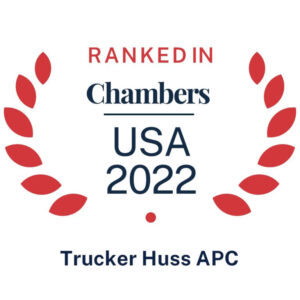JOSEPH C. FAUCHER AND DYLAN R. RUDOLPH, DECEMBER 20, 2017
This article analyzes how Dudenhoeffer applies in cases involving stock of closely held companies. It was first published by Wolters Kluwer in the Journal of Pension Benefits, Summer 2017, Vol. 24, No. 4.
In our last article, “ERISA Stock Drop Cases Since Dudenhoeffer: The Pleading Standard Has Been Raised,” we discussed the current state of the law regarding the pleading standard applicable to claims that employee benefit plan fiduciaries imprudently offered company stock as a plan investment option. Our conclusion was that in the publicly-traded company setting, the Supreme Court’s decision in Fifth Third Bank v. Dudenhoeffer made it more difficult for plaintiffs in those cases to plead an actionable claim, and thereby survive an early motion to dismiss. [134 S. Ct. 2459 (2014)]
To recap, for several years leading up to Dudenhoeffer, several Courts of Appeals applied a “presumption of prudence” to fiduciary decisions to offer company stock as an investment option. (Most of these cases involved offering company stock as an investment option in the companies’ 401(k) plans.) That is to say, the Courts required plaintiffs to plead, and ultimately prove, facts that would overcome the presumption that the fiduciaries were prudent in offering company stock as an investment option. Dudenhoeffer enunciated a new pleading standard, which contemplated that plaintiffs would base their claims either on publicly available information, or non-publicly available or “inside” information.
First, the Court noted that claims based on publicly available information alone are “… implausible as a general rule, at least in the absence of special circumstances.” [Dudenhoeffer, 134 S. Ct. at 2471] Second, complaints based on alleged failures to disclose inside information must “… plausibly allege an alternative action that the ERISA fiduciary could have taken that would have been consistent with the securities laws and that a prudent fiduciary in the same circumstances would not have viewed as more likely to harm the fund than to help it.” [Dudenhoeffer, 134 S. Ct. at 2472] In the wake of these new standards, it has been difficult for plaintiffs in these cases to overcome early motions to dismiss.
But breach of fiduciary duty claims are not confined to cases involving companies whose stock is publicly traded. Employee stock ownership plans (ESOPs) are also sponsored by privately held companies. Litigation is common in that private company setting. A typical claim in the private company context involves an allegation that a plan overpaid for company stock. Those cases arguably do not fit squarely into the pleading framework that Dudenhoeffer established. This article addresses how federal courts have applied Dudenhoeffer’s holding in cases involving ESOPs sponsored by closely held companies.
Allen v. GreatBanc Trust Company
Allen v. GreatBanc Trust Company involved claims by participants in an ESOP sponsored by privately held Personal-Touch Home Care, Inc. (Personal- Touch). [835 F.3d 670 (7th Cir. 2016)] The ESOP purchased the shares of Personal-Touch from the company’s shareholders for $60 million. GreatBanc Trust Company acted as the trustee on behalf of the ESOP and approved the purchase price. The plaintiffs claimed that the ESOP substantially overpaid for the shares. Shortly after the transaction closed, a valuation of the company reflected a nearly 50 percent decline in the share value. (A decline in share value is not unusual in a transaction where the company borrows money to loan to the ESOP to purchase the shares. The debt can have a substantial impact on share value.) The complaint included few facts about why exactly plaintiffs claimed GreatBanc breached its fiduciary duty to the ESOP in approving the purchase transaction. GreatBanc moved to dismiss the complaint, and the district court granted the motion. The court’s opinion relied, in part, on Dudenhoeffer:
The Supreme Court recently addressed the issue of post-purchase stock prices in Fifth Third Bancorp v. Dudenhoeffer. [134 S. Ct. 2459 (2014)] According to the Court, “allegations that a fiduciary should have recognized from publicly available information alone that the market was over- or undervaluing the stock are implausible as a general rule, at least in the absence of special circumstances.” [Dudenhoeffer, 134 S. Ct. at 2471] Although the Dudenhoeffer holding dealt with publicly-traded stock instead of a privately held company such as Personal-Touch, Dudenhoeffer’s emphasis on special circumstances seems applicable in this case. Absent an allegation of special circumstances regarding, for example, a specific risk a fiduciary failed to properly assess, any fiduciary would be liable for at least discovery costs when the value of an asset declines. Such a circumstance cannot be the intention of Rule 8(a), or Dudenhoeffer. An allegation of a special circumstance is missing in this case—in fact, we know absolutely nothing about the financial situation of Personal-Touch.
The plaintiffs appealed the district court’s decision, and the Seventh Circuit Court of Appeals reversed. The Court squarely disagreed with the decision to apply Dudenhoeffer outside the publicly-traded stock context:
GreatBanc’s (and the district court’s) reliance on Dudenhoeffer is unwarranted. In Dudenhoeffer, the Supreme Court held that ERISA fiduciaries conducting ESOP transactions can generally prudently rely on the market value of publicly-traded stock, absent special circumstances. [Dudenhoeffer, 134 S. Ct. at 2471] The Court suggested that the special circumstances might include something like available public information tending to suggest that the public market price did not reflect the true value of the shares. [Id. at 2472] As we have just emphasized, however, the Court’s holding was limited to publicly-traded stock and relies on the integrity of the prices produced by liquid markets. Private stock has no “market price,” for the obvious reason that it is not traded on any public market. [Allen, 835 F.3d at 679] So far, Allen is the only Circuit Court of Appeals to weigh in directly on this issue.
Hill v. Hill Brothers Construction Company, Inc.
Hill v. Hill Brothers Construction Company, Inc. was decided before the Seventh Circuit Court of Appeals decided Allen v. GreatBanc Trust Co., and reached the opposite conclusion. [No. 14-cv-213-SA-SAA, 2016 WL 1252983 (N.D. Miss. Mar. 28, 2016)] In Hill, the plaintiffs alleged that in October 2012, they were advised that their ESOP’s shares were valued at nearly $20 million. About six months later, they were told the shares were worthless. The plaintiffs filed an action for breach of fiduciary duty and the defendants moved to dismiss. As in Allen, plaintiffs argued that Dudenhoeffer did not apply because Hill Brothers Construction was a closely held corporation that is not subject to securities laws. The district court dispensed with this argument, noting that Dudenhoeffer did not specify “that the ‘alternative action’ standard is to be applied to ESOPs of publicly-traded entities only. The context-specific inquiry engaged in by the Supreme Court … led to analyzing the elements and considerations unique to publicly-traded corporations. Those context-specific considerations are not necessary here.” [Hill, 2016 WL 1252983 at *5] The court also found it important that the value of the shares was decided by a “neutral third party, and there are no allegations of fraud with respect to that valuation.” [Hill, 2016 WL 1252983 at *6]
But the court in Hill left itself an out. It held that even if Dudenhoeffer did not apply to the claims in the closely held corporation context, the claims of the plaintiff in Hill fell short of stating a viable claim for breach of fiduciary duty. So, the decision did not turn entirely on whether Dudenhoeffer applied in the context of a closely held ESOP company or not.
Brannen v. First Citizens Bankshares, Inc.
In Brannen v. First Citizen Bankshares, Inc., a Georgia district court considered claims that ESOP plan fiduciaries breached their duties of loyalty and prudence for retaining company stock during a period when it experienced a 50 percent decline in value and failing to disburse the plaintiff’s remaining amount upon request. [No. 15-cv-30, 2016 WL 4499458, *4 (S.D. Ga. Aug. 26, 2016)] Although the court “assumed” that Dudenhoeffer applied in circumstances involving privately held companies, it concluded that “the alternative-action requirement” does not apply “to every potential prudence claim.” “The relevant distinction,” the court found, “is between cases alleging imprudent investment decisions and those alleging a failure to investigate and reach a considered decision.” [Brannen, 2016 WL 4499458 at *6]
Based on a review of cases applying Dudenhoeffer, the court further concluded that the alternative-action requirement is applied to claims alleging “that parties knew or should have known that a stock was improperly valued or risky based on inside information,” and not claims involving allegations that a “fiduciary breached the duty of prudence by failing to investigate the prudence of remaining in an investment.” In fact, the court found that “no court has applied [Dudenhoeffer’s] alternative-action requirement” in these types of cases, and held that “at the motion-to dismiss stage, there is no alternative action requirement in a case alleging that a Defendant breached the duty of prudence by failing to conduct an investigation into the prudence of continuing to hold an investment.”
Aside from determining that the alternative action requirement was inapplicable in this context, the court did not elaborate on what effect Dudenhoeffer did have on its review of cases involving a claimed failure to investigate, other than to say that Dudenhoeffer requires a “careful, context-sensitive scrutiny of a complaint’s allegations.” Like the court, we are left to assume that the alternative action requirement may apply to claims that involve privately held companies and allegations of imprudent investment decisions.
Vespa v. Singler-Ernster, Inc.
According to the district court in Vespa v. Singler-Ernster, Inc., the primary dispute there was whether the adequacy of the claims “… turn[s] on whether the pleading requirements identified in [Dudenhoeffer] … apply where the ESOP in dispute does not relate to a publicly traded corporation.” [No. 16-cv-03723, 2016 WL 663710 (N.D. Cal. Nov. 8, 2016)] Citing to Hill, the court held Dudenhoeffer’s holding applies in the context of cases involving closely held companies as well. Surprisingly, the court in Vespa did not mention the Seventh Circuit’s decision in Allen (which predated Vespa).
Conclusion
So far, one Circuit Court of Appeals has squarely held that the pleading standards established in Dudenhoeffer do not apply in cases involving ESOPs sponsored by closely held companies. Two district court cases have reached the opposite conclusion. It is too soon to tell whether fiduciaries of closely held ESOP companies can take much comfort from Dudenhoeffer’s stringent pleading standards. The few district courts that have directly addressed the issue appear reticent to conclude that the most recent Supreme Court decision on the general subject does not apply in the specific context of claims involving closely held company ESOPs.




